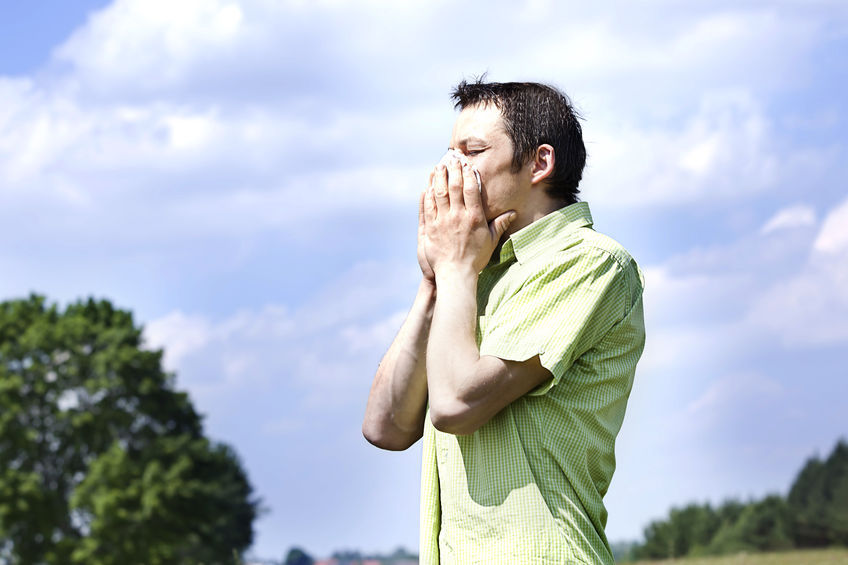
Spring and summer come with the promise of longer days and more time outdoors. However, for millions of people it also comes with the promise of allergies. Runny nose, sneezing and congestion are common symptoms but seasonal allergies can also wreak havoc on your skin. While blooming flowers mean that winter is finally over, they can also cause puffy eyes, rashes, and flaky skin due to pollen, which becomes airborne in the spring and summer. Pollen can cause the body to react by releasing histamine, a neurotransmitter that dilates blood vessels, which is a fancy way of saying that it can cause redness and itching of the skin. These types of seasonal allergy symptoms are not only uncomfortable but can also affect your appearance. People who suffer from seasonal allergies tend to rub their eyes and nose, causing redness and dark circles around the eyes. This spring and summer don’t let seasonal allergies affect your skin. Advanced Dermatology has five easy tips on what you can do to help reduce seasonal skin allergies.
Five easy ways to save your skin during allergy season:
- Wash clothes and skin after being outside. After being outside it’s best to change your clothes as pollen can stick to them and continue to cause skin irritations throughout the day. Rinsing pollen from your skin and hair is also recommended. It’s also best to avoid hanging laundry outside this time of year. If you suffer from allergies it’s best to use an indoor drying rack or a dryer because pollen in the air can actually stick to clothes, sheets and towels.
- Avoid outdoor activity in the early morning. Instead of getting that early morning run in before work, try jogging or any other outdoor activities in the evening since pollen counts are the highest in the early morning. The more pollen out there, the more it can irritate the skin. Avoiding outdoor activities in the morning could help reduce the amount your skin is affected by seasonal allergies throughout the entire day.
- Delegate garden chores. Gardening can be relaxing but it can also stir up lots of allergens. Avoid mowing your lawn, weeding or garden chores in general during this time of year. If you can’t avoid being outside you can wear a pollen mask that will help avoid some symptoms. Since pollen may still affect your skin, long sleeve and pants can also help prevent skin irritations.
- Avoid using certain skin products. If your skin is already irritated by seasonal allergies, it’s best to avoid products that might increase skin sensitivity. Be aware of products that have fragrances, parabens, or propylene glycol, which are toxic preservatives that can be found in many everyday cosmetics.
- Ask a doctor. If your skin suffers during allergy season without much relief, ask a medical professional what kind of treatment would be most helpful. There are many different anti-itch creams and allergy medications available. Depending on the severity of your skin allergy, prescription medication, including topical treatments, can help reduce skin reactions. For best results it’s recommended to have an experienced dermatologist diagnose the skin irritation and create a personalized treatment plan.
How Can Advanced Dermatology Help?
Many people can prevent allergy attacks by avoiding common seasonal allergens or by taking over-the-counter medications. However, if your skin is greatly affected by seasonal allergies then seeking medical help can make a big difference. A dermatologist can do different tests to determine what specific steps you need to take to avoid certain allergy triggers and identify which course of treatment is the best for you. Advanced Dermatology provides its patients with the most extensive skin solutions in New York City and the metropolitan area. With offices in Nassau County, Queens, and New Jersey, Advanced Dermatology offers medical treatments that can help drastically reduce skin allergies and have you looking your best this season.
